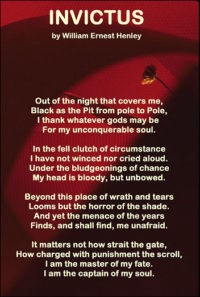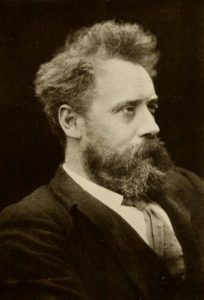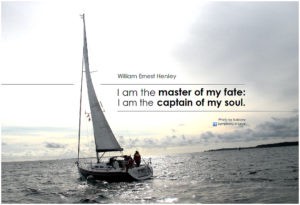

Invictus by William Ernest Henley is an inspirational poem. This poem depicts the poet?s attempt to motivate himself when there is no hope at all. When the poet writes this poem he has already lost one of his legs. So, in such a situation of mental and physical agony, the poet tries to lift up his courage.
In the very beginning of the poem, the poet says that he wants to thank God. In fact, he admits that his life has no ray of hope. Rather his future seems to be as dark as a pit. But then also he is grateful to God for his ?unconquerable soul?. He says that no pain can be able to curve his soul.
Out of the night that covers me, Black as the pit from pole to pole, I thank whatever gods may be For my unconquerable soul. (Invictus)
Eventually, he claims that whenever he fell into some difficulty he always remained unbeatable. However, situations have tried to destroy him, he always fights back with courage. In fact, he agrees that sometimes difficulties have made him bleed and suffer. But he never let himself to bow before them and cry out of fear.
In the fell clutch of circumstance I have not winced nor cried aloud. Under the bludgeonings of chance My head is bloody, but unbowed. (Invictus)
In the third stanza, the poet says that horror has always lurked behind him. But it always finds him unafraid. Whenever menace or trouble has come in his life he has faced it bravely.
Beyond this place of wrath and tears Looms but the Horror of the shade, And yet the menace of the years Finds, and shall find me, unafraid. (Invictus)

Finally, in the last stanza, Henley says that though the gate of life is narrow he will definitely pass it with vigor. Moreover, he declares that he is the master of his fate, meaning his fortune. Also, he claims that he is the captain of his soul.
It matters not how strait the gate, How charged with punishments the scroll, I am the master of my fate: I am the captain of my soul. (Invictus)
Hence, this poem motivates the readers to understand the fact that nobody can control our lives. It only depends on us how we choose to live our lives. Henley ends his poem with a note that one should become the friend, philosopher, and guide of one?s own soul.
? ? ? ? ? ? ? ? ? ? ? ? ? ? ? ? ? ? ? ? ? ? ? ?
Originally published at fineanalysis.site on August 6, 2018.

